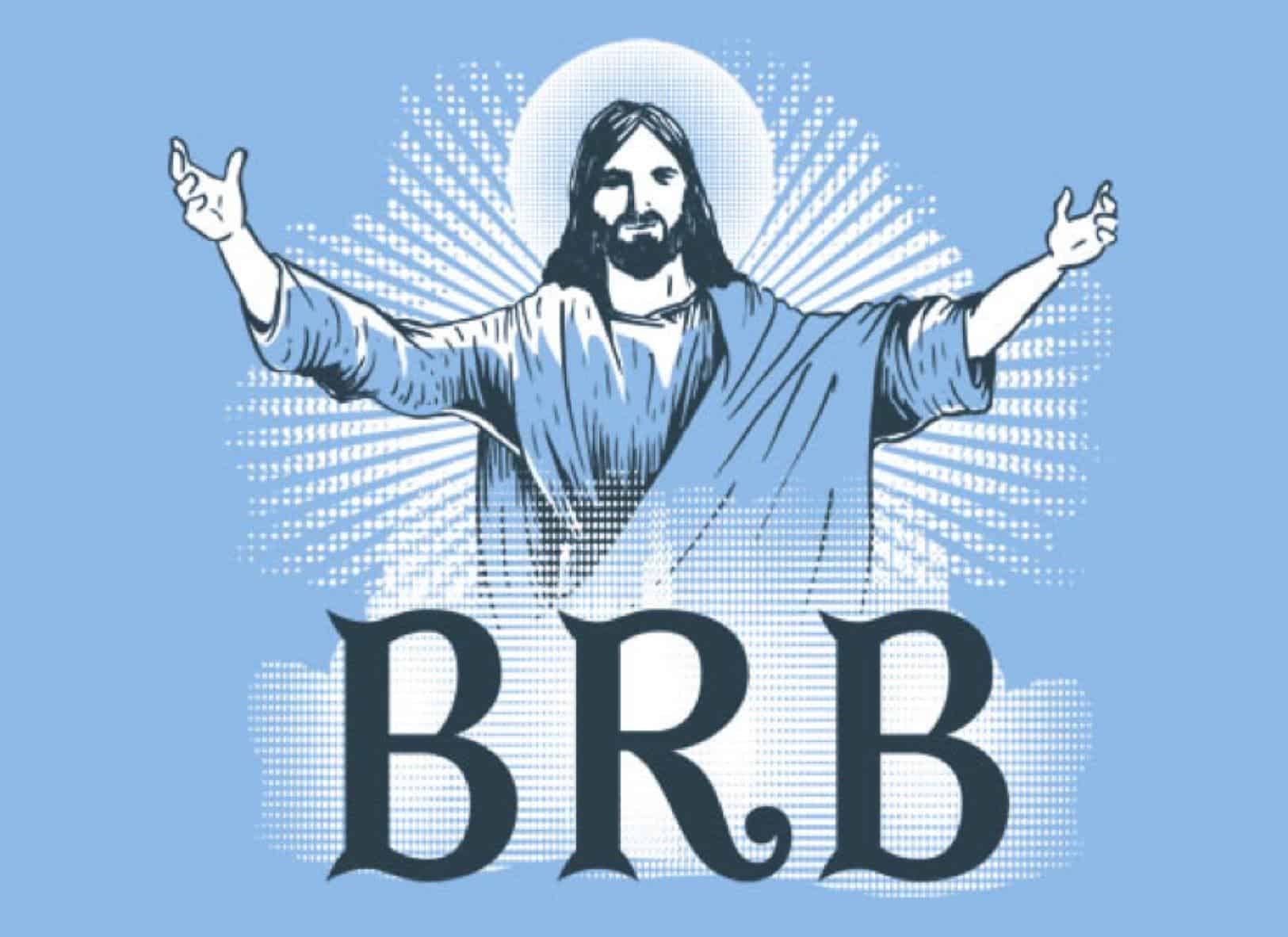 Today’s post is part 3 of a 3 part series on why Jesus didn’t come back soon as he said he would—or in technical terms, why the parousia is delayed.
Today’s post is part 3 of a 3 part series on why Jesus didn’t come back soon as he said he would—or in technical terms, why the parousia is delayed.
The posts are co-written by Christopher M. Hays and C. A. Strine and based on the recent book edited by Hays, When the Son of Man Didn’t Come: A Constructive Proposal on the Delay of the Parousia. (You can go to the first post for more information on our authors.)
The gist of the first post, written by New Testament scholar Hays, was that, indeed, Jesus told his disciples that he would come back soon but then didn’t. Yesterday’s post, written by Old Testament scholar Strine, lays out the conditional nature of Old Testament prophecy. In today’s post, Hays shows us that the New Testament follows right along with the Old.
Post 3: The New Testament Tells Us Why Jesus Hasn’t Come Back (by Christopher M. Hays)
As we discussed in our first post, one of the biggest problems with Christian belief is the fact that Jesus prophesied that he would come back sometime in the first century, and he didn’t.
But in our second post, Casey Strine, pointed out that in ancient Jewish literature, prophecy was not a fixed prognostication of what would invariably go down in the future; rather, the outcomes of prophecies depended on the responses of the addressees: if they were righteous, they might avert the destruction foretold by the prophet, but if they were rebellious, they might not inherit the restoration promised by God’s messenger.
Why not take this same stance towards the Gospel texts prophesying the return of Jesus in the first century? Intriguingly, this is precisely the approach taken by some New Testament texts. For example, check out 2 Peter.
The second epistle of Peter is famed for deferring the eschaton nigh interminably by averring that “one day is as a thousand years to the Lord, and a thousand years as one day” (2 Pet 3.8). Here, the author (we’ll just call him “Peter”) denies that God is concerned with the chronologies that so occupy human attention, and is often rejected out of hand as just so much special pleading.
Out of context, it does seem like Peter is moving the goalposts. But in fact, he is simply following what we saw in the previous post about the conditional nature of biblical prophecy.
The trick is not to overlook the next verse: “The Lord is not slow to fulfill his promise as some count slowness, but is patient toward you, not wishing that any should perish, but that all should reach repentance” (2 Pet 3.9).
Peter explicitly affirms that the delay of the parousia is God’s response to human behavior: God defers his final judgment in order to allow more people to come to repentance. In other words, Peter affirms the conditional character of the timing in which the parousia was prophesied to occur. And given when Casey argued in our last post, that’s kind of a big deal.
This does not mean that Peter has written off the second coming. Instead, he reasserts the certainty of the eschatological judgment, and uses that very eschatological certainty to motivate Christian ethics.
But the day of the Lord will come like a thief, and then the heavens will pass away with a roar, and the heavenly bodies will be burned up and dissolved, and the earth and the works that are done on it will be exposed. Since all these things are thus to be dissolved, what sort of people ought you to be in lives of holiness and godliness (2 Pet 3.10-11).
Eschatology stimulates ethics.
But note that Peter does not conclude with an injunction to holiness. Rather, he says, “Since all these things are thus to be dissolved, what sort of people ought you to be in lives of holiness and godliness, waiting for and hastening the coming of the day of God” (2 Pet 3.11-12).
Peter proclaims that lives of holiness and godliness can actually expedite the Day of the Lord.
Thus, eschatology not only stimulates ethics, but ethics stimulate eschatology; the two are mutually reinforcing.
And this makes good sense. If Peter believes that the end is delayed so that people can repent from wickedness, it stands to reason that lives of holiness would expedite the eschaton.
The Kingdom has not been fulfilled, as Peter explains, because people dropped the ball. Therefore, everyone should bust their butts to speed up the arrival of the Kingdom of God.
This is kind of a trip for 21st century believers, because we tend to think of the Second Coming of Christ as being firmly scheduled on the celestial calendar. But that’s definitely not what New Testament authors all claimed.
For example, in Peter’s Temple sermon in Acts 3, he tells his audience:
Repent therefore, and turn to God so that your sins may be wiped out, so that [Greek hopōs an] times of refreshing may come from the presence of the Lord, and [so that] he may send the Messiah appointed for you, that is, Jesus, who must remain in heaven until the time of universal restoration that God announced long ago through his holy prophets. (Acts 3:19-21, NRSV with minor adjustment by the author)
Peter urges the Jerusalemites to repent in order that (hopōs an) the eschatological consummation might come to pass.
Repentance is a precondition of the second coming of Christ.
Peter specifically states that, after the Jews repent and are forgiven their sins, “times of refreshing” will come, and God will send Jesus back. Until that time, Jesus remains in heaven; but when he returns he will bring about the “universal restoration” the prophets had long foretold.
Jesus back. Until that time, Jesus remains in heaven; but when he returns he will bring about the “universal restoration” the prophets had long foretold.
In other words, the eschatological consummation was delayed until the second coming of the Messiah, this time to a penitent and righteous people.
Let me give one more example to show that even Jesus—who did prophesy about coming back during the lives of the first generation of disciples—recognized that the timing of his second coming could be flexible.
In the Lord’s Prayer itself Jesus tells his disciples to pray, “May your kingdom come (elthetō) and may your will be done (genēthētō) on earth as it is in heaven” (Matt. 6:10; cf. Luke 11:2).
On the face of it, this line seems frivolous; Jesus had already been making it perfectly clear that he was bringing about the Kingdom…so why does he say “may” it come or be done (the Greek is a form of a command)?
The answer is simple. The prayer “May your kingdom come and may your will be done” pertains to the consummation of the Kingdom. Jesus is asking for God to do it sooner rather than later.
Jesus himself recognizes that the timing of the Kingdom’s consummation is not set in stone…and so he urges his disciples to set themselves to the task of hastening the day.
Obviously, this raises some questions.
- Is this just a new invention of resourceful biblical scholars? (Nope. You can totally find this eschatology in the Church Fathers, and throughout the histories of the three major Christian traditions.)
- How does this square with divine sovereignty? (Just dandy, actually.)
- Does this impact the life of the Church? (Yup!)
So, we figured that it was worth writing a the book to flesh this out. But the basic pay-off is this: the delay of the parousia does not falsify Christian hope.
You can be a critical scholar, an honest reader of Scripture, and still pray, “Come, Lord Jesus.”

